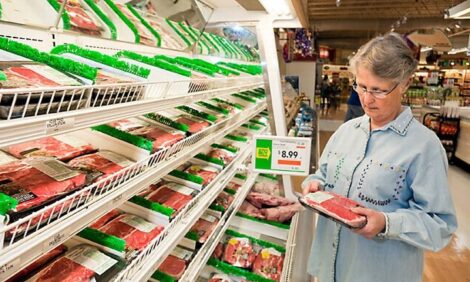



US-Brazil Cotton Deal has Implications on Beef, Pork
US - United States Trade Representative, Ron Kirk, and Secretary of Agriculture, Tom Vilsack, have agreed upon a path toward a negotiated settlement with Brazil over the Cotton dispute - a trade row that had potential knock-on effects on other products including beef and pork.On 8 March, Brazil announced a final list of products that would face higher tariffs beginning on 7 April 2010. Goods on the list include autos, pharmaceuticals, medical equipment, electronics, textiles, wheat, fruit and nuts, and cotton. Brazil had not made a final decision on which US intellectual property rights might be affected by cross-sectoral countermeasures, but it had begun a process to make this determination.
On 1 April, Deputy USTR Miriam Sapiro and USDA Undersecretary for Farm and Foreign Agricultural Services Jim Miller met with Ambassador Antonio Patriota, Secretary General of Brazil's Ministry of External Relations to discuss possible resolution of the dispute. As a result of that dialogue, the Government of Brazil agreed not to impose any countermeasures on US trade on 7 April.
In exchange, the United States agreed to work with Brazil to establish a fund of approximately $147.3 million per year on a pro rata basis to provide technical assistance and capacity building.
Under terms to be agreed by the United States and Brazil in the Memorandum of Understanding, the fund would continue until passage of the next Farm Bill or a mutually agreed solution to the Cotton dispute is reached, whichever is sooner. The fund would be subject to transparency and auditing requirements.
The United States also agreed to make some near term modifications to the operation of the GSM-102 Export Credit Guarantee programme, and to engage with the Government of Brazil in technical discussions regarding further operation of the programme.
The United States also agreed to publish a proposed rule by 16 April, 2010, to recognize the State of Santa Catarina as free of foot-and-mouth disease, rinderpest, classical swine fever, African swine fever, and swine vesicular disease, based on World Organization for Animal Health Guidelines and to complete a risk evaluation that is currently underway and identify appropriate risk mitigation measures to determine whether fresh beef can be imported from Brazil while preventing the introduction of foot-and-mouth disease in the United States.
Following implementation of these initial steps, the United States and the Government of Brazil agreed to continue engagement on these issues, with a view to agreeing on a process by June that will allow us to reach a mutually agreed solution to the Cotton dispute.
"I am pleased that our teams have been able to make substantial progress towards the goal of a negotiated settlement which would avoid the imposition of countermeasures against US trade, including U.S. exports and intellectual property rights. We now have a clear path forward, one that is in the best interest of both the United States and Brazil," said Ambassador Kirk.
"As a result of our discussions with Brazil we have avoided imposition of higher tariffs against hundreds of millions of dollars in U.S. goods exports which were scheduled to go into effect this week. This demonstrates how our two countries, working together, can solve problems. I am hopeful that this will enable us to build upon our strong relationship with Brazil, to the benefit of both of our economies."
"I am so pleased that we were able to agree on a path forward with Brazil that will avoid the imposition of countermeasures on US agricultural products and industrial goods that Brazil had announced would go into effect on Wednesday. Both the United States and Brazil will benefit by working together to resolve our dispute," said Secretary Vilsack.
"I am also pleased that our path forward respects our Farm Bill process and the role of Congress in shaping our commodity programmes. I look forward to working with Congress and Brazil to crafting a long-term, mutually-agreeable solution to this dispute that meets the needs of American farmers, workers and consumers."








